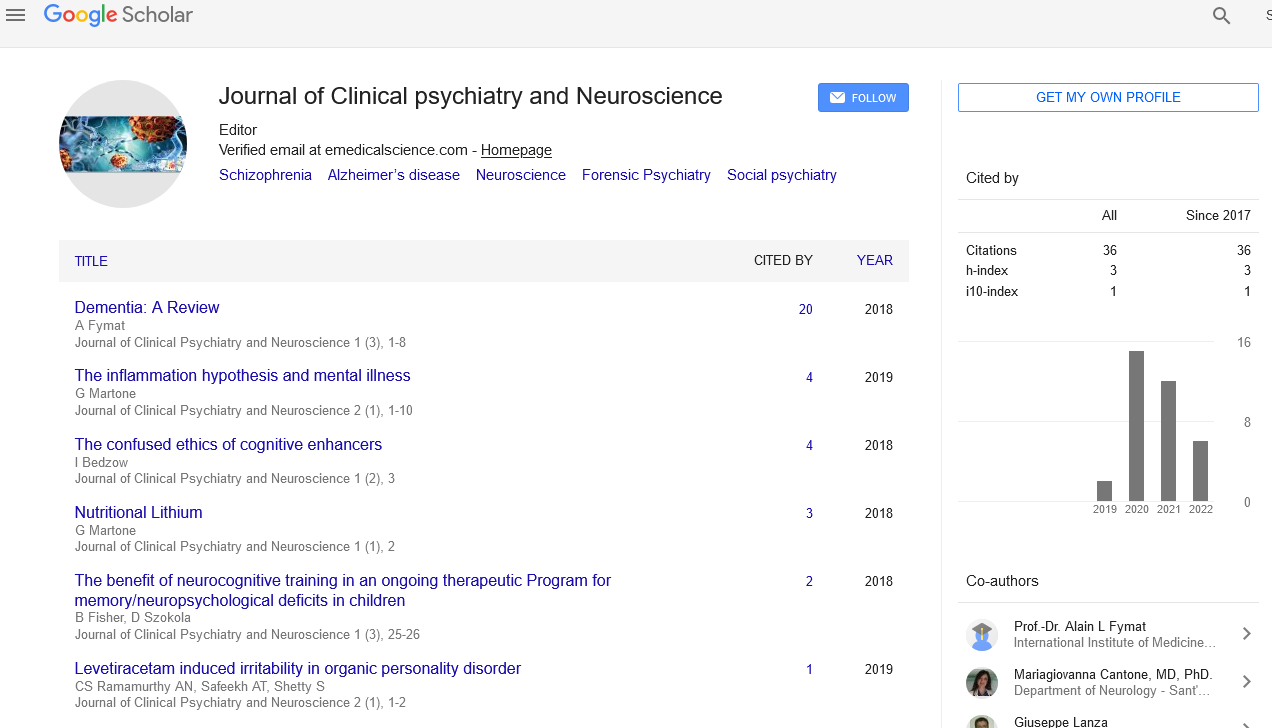
Sign up for email alert when new content gets added: Sign up
Abstract
Editorial Note on Machado-Joseph Disease
Author(s): Sarilla Gowthami
Machado–Joseph disease (MJD), also known as Machado–Joseph Azorean disease is a rare autosomal dominantly inherited neurodegenerative disease that causes progressive cerebellar ataxia which results in a lack of muscle control and coordination of the upper and lower extremities.MJD is characterized by slowly progressive clumsiness in the arms and legs, a staggering lurching gait that can be mistaken for drunkenness, difficulty with speech and swallowing, impaired eye movements sometimes accompanied by double vision or bulging eyes, and lower limb spasticity. Some individuals develop dystonia (sustained muscle contractions that cause twisting of the body and limbs, repetitive movements, and abnormal postures) or symptoms similar to those of Parkinson’s disease. Others may develop fasciculations (twitching) of the face or tongue, neuropathy, or problems with urination and the autonomic nervous system.




